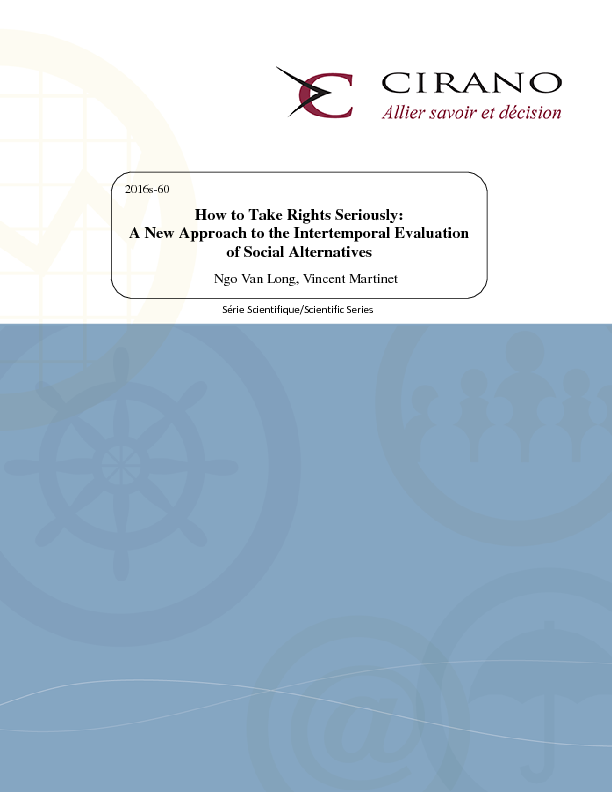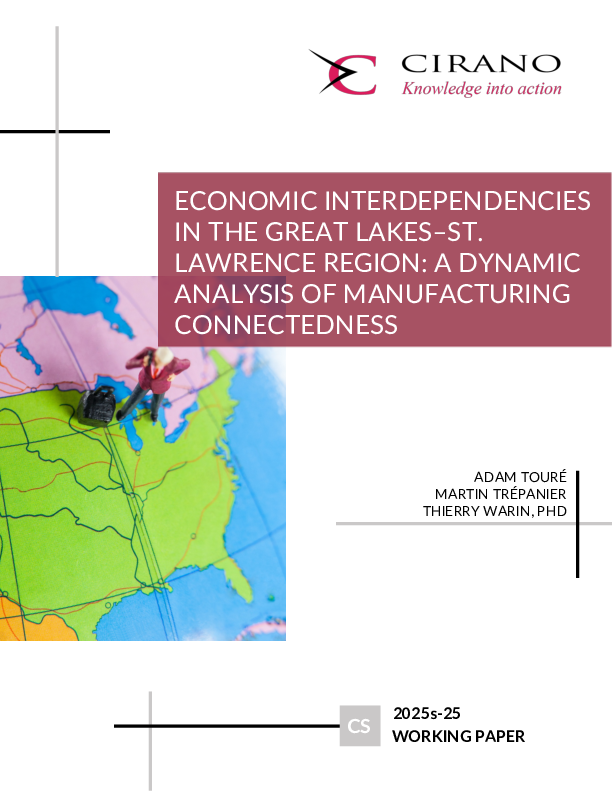How to Take Rights Seriously: A New Approach to the Intertemporal Evaluation of Social Alternatives
We
propose a new criterion reflecting both the concern for rights and the concern
for welfare in the evaluation of economic development paths. The concern for
rights is captured by a pre-ordering over combinations of thresholds
corresponding to floors or ceilings on various quantitative indicators. The
resulting constraints on actions and on levels of state variables are
interpreted as minimal rights to be guaranteed to all generations, for
intergenerational equity purposes. The levels of these rights are endogenously
chosen, accounting for the “cost in terms of welfare” of granting them. Such a
criterion could embody the idea of sustainable development. We provide an
axiomatization of such a criterion and characterize the tension between rights
and welfare in a general economic framework. We apply the criterion to the
standard Dasgupta-Heal-Solow model of resource extraction and capital
accumulation. We show that if the weight given to rights in the criterion is
sufficiently high, the optimal solution is on the threshold possibility
frontier. The development path is then “driven” by the rights. Specifically, if
a minimal consumption is considered as a right, constant consumption can be
optimal even with a positive utility discount rate. In this case, the shadow
value of the right plays an important role in the determination of the rate of
discount to be applied to social investment projects.
[ - ]




